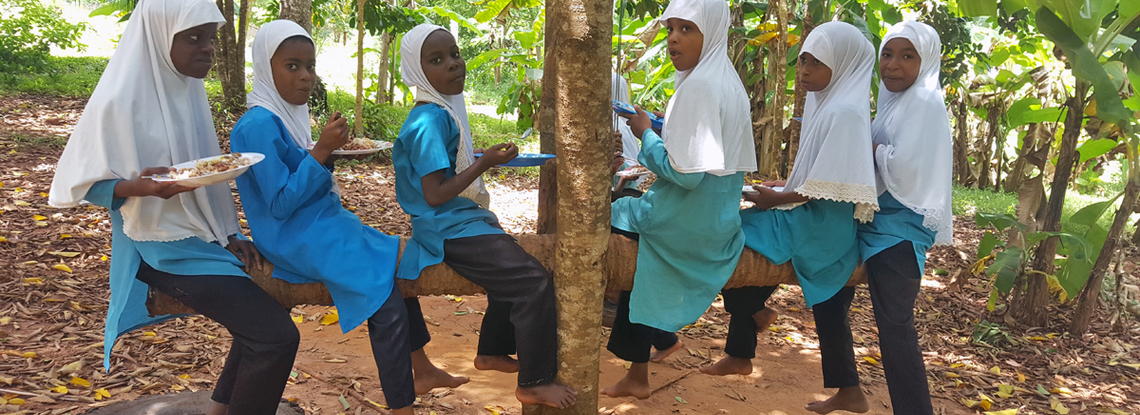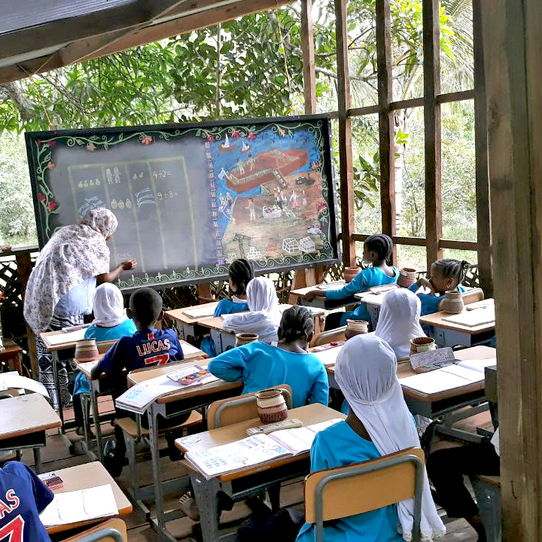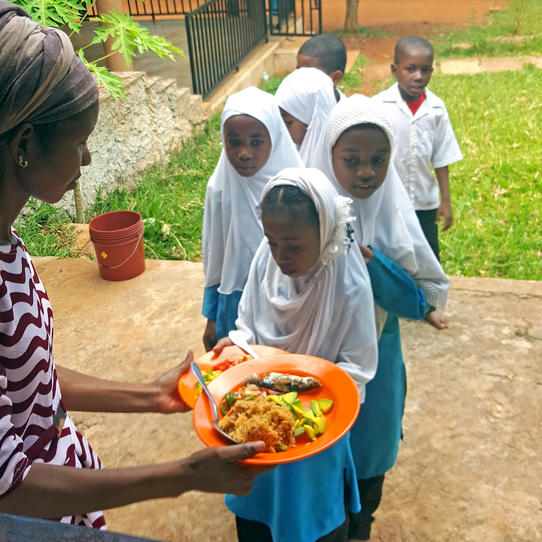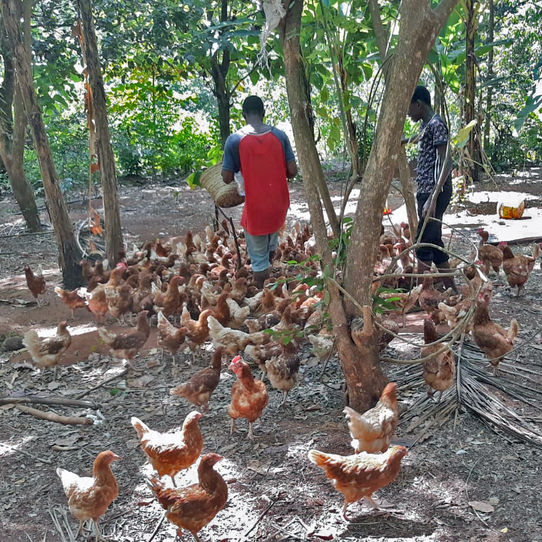
Zanzibar: Healthier Children Thanks to Better School Meals
Seven years after its foundation, the Rudolf Steiner School Zanzibar started the new school year with its five classes (2nd, 5th, 6th, 7th and 8th grade) in January 2020. The school provides a learning environment that is stable by local standards and meets the diverse needs of the 72 children and staff members of the school in Kidichi, Zanzibar. Sönke Bohn, who regularly visits and accompanies the school, gives us his report.

Seven years of developing this school and a largely stable community of children and teachers have created a lot of trust, both internally and externally. From teacher training in Nairobi to intensive local cooperation and most recently also through internships in Europe, there has been and still is a lot of support: a modest but powerful school initiative has completed its first seven years.
But even though this initiative has already developed strong roots, there is still a harsh wind blowing through the premises: In addition to the particular care taken in hiring teachers and staff - in terms of their willingness to take responsibility, their willingness to learn and their pedagogical skills - and the lack of good classrooms, the school's own nutrition program is also a major challenge.
The school deals with the lack of space by making compromises. The classrooms that were set up ad hoc for official permits can hardly be called charming. They are dark and seem very provisional, but they can also be dismantled quickly, when more beautiful ones become available. Far more charming - but requiring the highest pedagogical skills - is the open-air classroom under the large mango tree. It was sponsored and built by students from the United Emirates. But the school needs more rooms, because a new first grade is to be added as soon as possible. The shell construction for the extension has already been completed - a weatherproof roof, a good floor and, if possible, a veranda are still missing.

While in Europe more children at a school means a higher income for the school, the precarious background of the local children here means that if the number of children increases this merely raises the running costs, but not the school’s income. Thus, welcoming a new class always remains a difficult decision, because the promise and responsibility towards the children should last for many years.
In Tanzania, and thus also in Zanzibar, the food situation is often uncertain for a large part of the population, despite fertile soils and favorable climatic conditions. Many people live on the edge of or in poverty. Most of the children who attend school come from just such circumstances. They are predominantly orphans or half-orphans who lack the necessary attention and care within their own community. For them, school is a place of security, non-violence, care and of the development of various cognitive, emotional, and life skills, health and - very fundamentally - nutritional skills.
Through the appeal for donations "school meals" of the Friends of Waldorf Education, a sum of over 4,000 euros was raised, which eliminated the school’s biggest worries for several months and also helped improve the quality. The children are given a milk pudding before classes begin, a snack at break time, lunch and always some fruit or an egg for the way home, as the children often get little more than a cup of tea at home. The school initiator already noticed a positive aspect of the good nutrition: The children need to seek medical attention less often.
A long-term goal is to reduce dependence on benevolent donors. In 2019, the school was able to purchase about 250 chickens, which have been populating the extensive school grounds in the shade of the clove, mango and many other trees and perennials since the summer. Of course, the children are involved in the care of the chickens. Collecting the eggs is a firm and joyfully performed duty of a class, the relationship with the animals is accordingly natural and cheerful. In the kitchen a lot of creativity is now required to make varied use of the eggs. Surpluses - a good 200 eggs are collected every day - were sold in the city, even providing a small source of income.

A further perspective based on sustainability is to employ a gardener to establish the diverse, but sometimes very high-maintenance possibilities (spice cultivation). Moussa Ali Mohamed, class and gardening teacher, has been familiarizing himself with the practice of biodynamic gardening for several years. Additional support comes from the neighboring farming cooperative, which has been working for years with the German project developer and consultant Rudolf Bühler. Thus the 5th, 6th, 7th and 8th grades work on several small beds of their own, for which the extensive school grounds will provide sufficient space for years to come. Various types of vegetables and fruit, but also spices, are grown here. There are for example tomatoes, cassava (manioc), pumpkin, corn, chilies, avocado, bananas, shoki shoki, coconuts, mangoes, papaya, and jackfruit. Pepper, vanilla, lemongrass, cinnamon and cloves are also grown. In addition to all the educational benefits, these efforts also have the advantage of adding to the school's nutritional program and contributing to the school kitchen. Thus the students of the 5th grade were familiarized with all the steps of tending to, harvesting and using the cloves and were rewarded with a harvest of over eight kilos of dried buds. However, these efforts are repeatedly sabotaged by families of monkeys that devastate the beds and trees.
With this cultivation of the grounds, which lie in the Kidichi Spice Area, the teachers and children are also connecting to the eventful history of the Spice Islands of Zanzibar and are thus making a modest but valuable contribution to the growth and prosperity of the cultural impulse that is school.
Sönke Bohn
